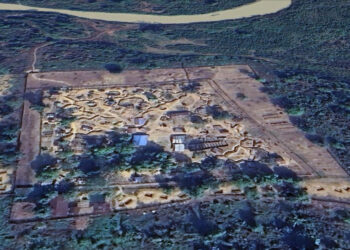As the prospect for Burma’s Nationwide Ceasefire Agreement (NCA) looms large, the question of what will happen in the aftermath of an accord has become ever more important.
The ethnic negotiating bloc, known as the Senior Delegation, is set to meet with high-level government officials and the Commander-in-Chief of the Burma Army, Snr-Gen Min Aung Hlaing, this week in Naypyidaw. The meeting will mark their final effort to conclude the deal with the government on the signing of the NCA.
During the last meeting between the government’s Union Peacemaking Work Committee (UPWC) and the Senior Delegation from Aug. 6 to 7, both sides accepted the text of the NCA. In preparation for the upcoming meeting, members of the Senior Delegation have convened in Chiang Mai over the past few days. The government’s insistence on excluding six ethnic armed groups from the pact—the Ta’ang National Liberation Army (TNLA), Arakan Army (AA), Myanmar National Democratic Alliance Army (MNDAA),Wa National Organization (WNO), Lahu Democratic Union (LDU) and the Arakan National Council ( ANC)—appears to be the only remaining hurdle.
A recent joint statement of four ethnic armed groups, including the powerful Karen National Union (KNU) and Restoration Council of Shan State (RCSS), indicate their readiness to sign the NCA. Similarly, some five ethnic armed groups—the Arakan Liberation Party (ALP), New Mon State Party (NMSP), Pa-O National Liberation Organization (PNLO), Chin National Front (CNF) and the All Burma Students Democratic Front (ABSDF)—have expressed their willingness to sign the NCA upon the condition that the army would not put military pressure on other groups that are unable to sign the pact.
Observers close to the process say an agreement could be reached as early as the first week of September. If this prediction is correct, Burma will have achieved an unprecedented nationwide treaty for the first time in modern history, potentially ending a conflict that has raged since the country’s independence from British colonial rule in 1948. But that’s only the first step, which paves the way for what will likely be a long and trying process of national reconciliation.
The NCA in its current form emphasizes the importance of political dialogue, a framework for which must be established within 60 days of signing the accord. No more than 90 days after signing the pact, the dialogue must commence. This dialogue should be geared toward establishing a federal union whereby ethnic groups have some political autonomy and rights over resources.
This dialogue must be acceptable to all stakeholders and ensure that discussion reflects and espouses the true desires of the people. It is crucial that a common framework for political dialogue that is acceptable to all stakeholders be in place before the dialogue begins. Since May 2015, an informal consultation process that involves discussion with a number of key stakeholders including political parties, ethnic armed groups and the government, has overviewed five frameworks for political dialogues that were developed by those key stakeholders. From these five frameworks and close consultation with stakeholders, a potential dialogue program that would require 13 sessions to tackle issues including decision making formulas, public consultation, community transmission and implementation of outcomes, such as amendments to the Constitution or existing laws has emerged.
Al five proposed dialogue frameworks have a lot in common. The key to finding an acceptable framework will be determining the number of principal stakeholders and their proportion to participants at the Union decision-making level, which will ultimately accept or reject proposals from state and divisional consultants to become the provisions of the national accord. Chiang Mai-based Ethnic Nationalities Affairs Center (ENAC) has also recently organized a multi- stakeholder’s discussion on establishing the appropriate framework for political dialogue.
The NCA is almost in sight, but that’s not the end of the road. The next big step is determining this framework, which will form the political discussion that has been at the heart of the entire peace process. If this dialogue fails, the whole process is at stake. Burma’s tragic history of conflict must not be repeated. The real battle—for national reconciliation—is only about to begin.
Sai Oo works with the Pyidaungsu Institute. Opinions expressed are his own and do not necessarily represent the Institute.

















